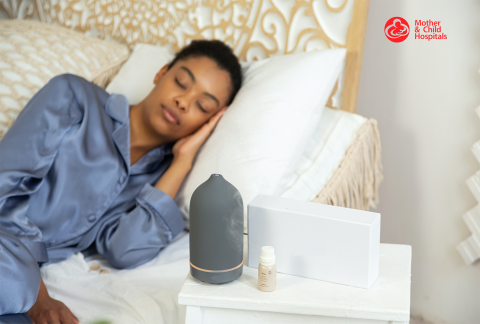-

Tips to improve your mental health
How to improve your mental health.
Mental health is crucial to our well-being. Taking care of it will help you feel happier, more productive, and better able to cope with life’s challenges. This blog post will explore tips for improving your mental health.
1. Practice Self-Care
Self-care is essential for good mental health. Make time for activities you enjoy, such as reading, bathing, or spending time with friends.Eat a healthy diet (cut down or eliminate alcohol, no smoking, drink 2L of water daily, eat a balanced diet), sleep well (6 hours of sleep daily), and exercise regularly (30 minutes of exercise 5 times a week is the standard). Taking care of yourself can help you feel better both physically and mentally.
Part of self-care is knowing your body, taking note of changes in your physical features. Visit the hospital promptly when you feel anything unusual.
2. Connect with others
Connecting with others promotes mental health. Spend time with friends and family, join a social group or participate in community activities. Finding time to bond with others can help you feel supported and less isolated.3. Manage stress
Stress can hurt mental and physical health. Try relaxation methods such as deep breathing and meditation to manage your mood. Make time for activities that help you relax, such as yoga or a massage.4. Seek Professional Help
If you’re struggling with your mental health, get professional help. A trained mental health person will support and guide you to health. They will provide treatment where necessary and help you cope.5. Practice gratitude
Practice gratitude to improve your mental health. Take time each day to reflect on what you’re grateful for, such as your health, family, or job. Focus on the things going well in your life and the positives around you to boost your mood and improve your outlook on life.6. Limit Social Media and News Consumption
Social media and news can be overwhelming and stressful. Reduce your consumption of social media and news to reduce stress and anxiety. Instead, focus on natural activities and things that bring you joy and relaxation.Conclusion
Your mental health is essential for your overall well-being. By practicing self-care, connecting with others, managing stress, seeking professional help, practicing gratitude, and limiting social media and news consumption, you can improve your mental health.
Identify stressors around you and learn to cope with or avoid them where possible to feel better emotionally, physically and mentally. See a healthcare provider if your stress levels are rising without apparent physical symptoms.
Need to speak with a medical professional? Please call +234 703 620 2190 (Omole) or +234 706 837 2987 (Adeniyi Jones) for bookings and appointments to see a doctor. You can also walk into Mother and Child Hospital at 2 Omole Layout, Ogunnusi Road, Ojodu or 39 Adeniyi Jones Avenue, Ikeja, Lagos State.
Mother and Child Hospital
-

Adequate sleep improves your mental health
Adequate sleep improves your mental health.
Getting enough sleep is essential for maintaining good mental health.
Without a doubt, sleep helps to regulate our emotions, reduce stress and anxiety, and improve our ability to concentrate and make decisions. Therefore, when we don’t get enough sleep, we’re more likely to experience mood swings, irritability, and difficulty coping with daily challenges. Stress affects a huge part of our life, including fertility, and poor sleep habits build up stress.
While you sleep, your body supports healthy brain function and maintains your physical health.
Furthermore, sleep helps children and young people grow mentally and physically.
Studies show people who are sleep-deprived are more moody, irritable, angry, sad or frustrated.
Sleeplessness can be a marker of conditions such as anxiety and depression or contribute to developing mood and mental health disorders. Consequently, sleep disorders like insomnia, narcolepsy and sleep apnea have lifestyle impacts.
We can improve our overall mental health and well-being by prioritizing good sleep.
How much sleep do you need?
How much sleep you need depends on age, physical activity, and general well-being. For instance, a pregnant woman may notice changes in her sleep pattern due to hormonal changes. However, constant fatigue may be a sign of anemia.
We recommend 9-10 hours of sleep for children and teenagers. Younger children tend to sleep and wake earlier, but as they grow into teenagers, they get tired later and sleep in. Adults need 8 hours of sleep. You may need more sleep if you (or your children) are tired during the day.
Tips for getting a good night’s sleep
- – Stick to a consistent sleep schedule daily
– Have a relaxing bedtime routine to prepare you for bed
– Avoid caffeine, nicotine, and alcohol before bedtime
– Make sure your bedroom is calm, quiet, and dark
– Invest in a comfortable mattress and pillows
– Limit your exposure to screens before bed
– Exercise regularly, but not too close to bedtime
– Avoid eating heavy or spicy meals before bedtime
– Incorporate deep breathing, meditation and other relaxing methodsBy incorporating these tips into your routine, you will sleep better and wake up energized. Sleep trouble may be a pointer to a lifestyle change you need to make. If the situation is persistent, however, you should see a doctor.
We take bookings and appointments through various channels if you need to speak to a doctor. You can walk into any of our hospitals without booking an appointment. Contact our customer care numbers, +234 703 620 2190 (Omole) or +234 706 837 2987 (Adeniyi Jones) for enquiries.
Mother and Child Hospital
- – Stick to a consistent sleep schedule daily
Healthy Family, our Mission | Contact us on +2347036202190 or +2347068372987
